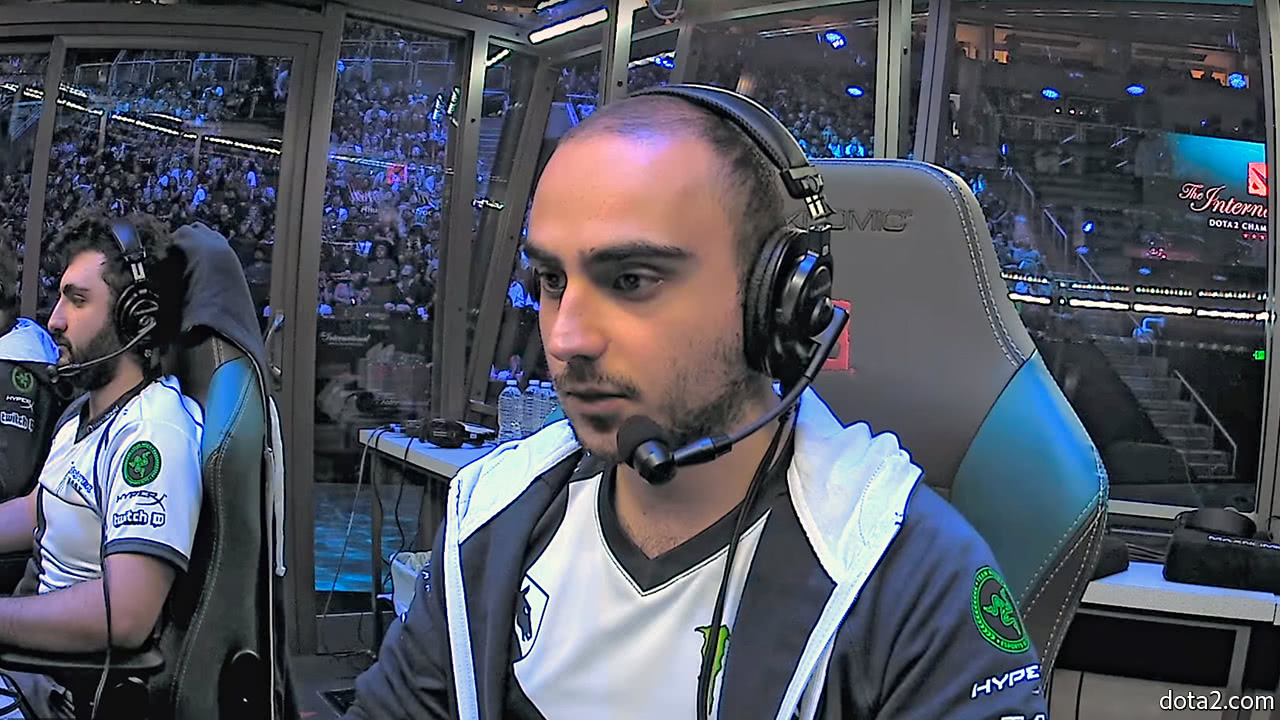
FIREWORKS detonated, smoke wafted over the stage and confetti began to fall. Seventeen thousand fans cheered the European players of Team Liquid, with monikers like “MinD_ContRoL” and “MATUMBAMAN”, who had just triumphed over a Chinese side to win The International, a tournament held in Seattle’s KeyArena on August 7th-12th. In the stands Max Martinez, a 25-year-old bartender from Phoenix, was in a state of nirvana. “This is like my Super Bowl,” he said.
But the players in this tournament had no need to catch, throw or run. Their most important muscles are those in their fingers. MinD_ContRoL, a bespectacled Bulgarian named Ivan Ivanov, excels at a computer game called “Dota 2”. Valve Corporation is the producer of “Dota 2”. It has put on The International since 2011, offering more than $10m to this year’s winners. The prize money is particularly rich, but the tournament itself is not unusual. E-sports, in which computer gamers compete before thousands of fans in person and millions more online, is on the rise.
-
Robert Pattinson has put his teen heartthrob roles behind him
-
Steve Bannon is ousted as the president’s chief strategist
-
Islamist terrorism in Catalonia leaves the Spanish wondering why
-
A year on from Brexit
-
The misplaced arguments against Black Lives Matter
-
Donald Trump blusters, Latin America shrugs
E-sports is gradually assembling all the trappings of mainstream sports: corporate sponsorships, professional managers, salaried players and even announcers who wear suits and make bad jokes. Last year Peter Guber, a co-owner of the Golden State Warriors basketball team, led a group of investors to buy a majority stake in Team Liquid for an undisclosed sum. His partners included Magic Johnson, a former basketball star, and Steve Case, a founder of AOL, an online service.
Their goal is for e-sports teams to compete with conventional ones for viewers and bigger corporate sponsorships. “How do we make this into football, bowling, the beer-and-chips crowd?” asks Joost van Dreunen of SuperData Research, a firm that tracks the gaming industry.
It still has a long way to go. Last year e-sports earned $900m, mainly from advertising, ticket sales and merchandise, according to SuperData, compared with $83bn from sales for mobile, computer and console games. Viewers watch for free. For now, the main value of e-sports is as a marketing tool to sell games.
That may change. Media companies are hungry for content that can win viewers’ attention; e-sports has a young, passionate audience. SuperData estimates that 258m people will watch e-sports this year, up by 20% from 2016, through online platforms such as Twitch. Giant firms have taken an interest. Amazon, an e-commerce juggernaut, bought Twitch in 2014 for nearly $1bn. Disney will soon have a controlling stake in BAMTech, a video-streaming firm that last year agreed to pay $300m for the rights to stream tournaments for a game called “League of Legends” until 2023. (The game’s 100m monthly active players outnumber the population of Germany.) The owner of “League of Legends” is Tencent, a Chinese internet giant.
Nevertheless, gamers face several obstacles before they can compete with established sports. Although big brands are beginning to sponsor events and teams, Mr van Dreunen says, they are still tentative and invest only small amounts. Another challenge is accessibility. Most viewers play the games themselves, some of which, like “Dota 2”, can boggle the mind. Devotees prefer complex games, but e-sports will need simpler ones to win new fans. In Seattle Mr Martinez described Team Liquid’s moves as “epic, like insane”. More than a few novice viewers would apply only the second label.
Source: economist
Computer-game tournaments go mainstream